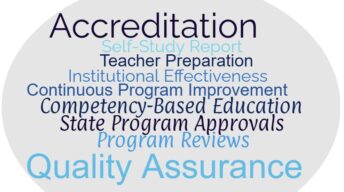Exceptional Academic Programs.
If you look at their mission statements, nearly all colleges and universities strive to serve students and support their success through innovation and high-quality course offerings. But how do they know what they offer is truly exceptional? Here are five innovative tips for how colleges and universities can ensure that they have outstanding academic programs through their quality assurance system:
Focus on student learning outcomes: The ultimate goal of any academic program is to help students learn and grow. To ensure that your programs are meeting this goal, it’s important to focus on student learning outcomes. This means regularly collecting data on student learning, such as grades, test scores, and surveys of student satisfaction. You can then use this data to identify areas where your programs are succeeding and areas where they could be improved.
Engage in continuous improvement: Quality assurance is not a one-time event. It’s an ongoing process of collecting data, analyzing it, and making changes to improve student learning. To be successful, you need to create a culture of continuous improvement within your institution. This means encouraging faculty and staff to be constantly looking for ways to improve their teaching and learning practices.
Use data to drive decision-making: The data you collect through your quality assurance system can be a valuable tool for making decisions about your academic programs. For example, if you find that students are struggling in a particular course, you can use this information to make changes to the course content or delivery. Or, if you find that a particular program is not meeting the needs of its students, you can use this information to make changes to the program or to discontinue it altogether.
Involve all stakeholders: Quality assurance is not just about the faculty and staff who teach the courses. It’s also about the students who take the courses, the alumni who graduate from the programs, and the employers who hire the graduates. To be successful, you need to involve all of these stakeholders in your quality assurance process. This means getting their input on the goals of your programs, the data you collect, and the changes you make.
Be transparent: Quality assurance should be an open and transparent process. This means sharing your data and findings with all stakeholders, including students, faculty, staff, alumni, and employers. It also means being willing to discuss the challenges you face and the changes you make to improve your programs.
By following these tips, higher education personnel can create a quality assurance system that will help ensure that the academic programs they offer are truly exceptional.
###
About the Author: A former public school teacher and college administrator, Dr. Roberta Ross-Fisher provides consultative support to colleges and universities in quality assurance, accreditation, educator preparation and competency-based education. Specialty: Council for the Accreditation of Educator Preparation (CAEP). She can be reached at: Roberta@globaleducationalconsulting.com
Top Photo Credit: Element5 Digital on Unsplash

